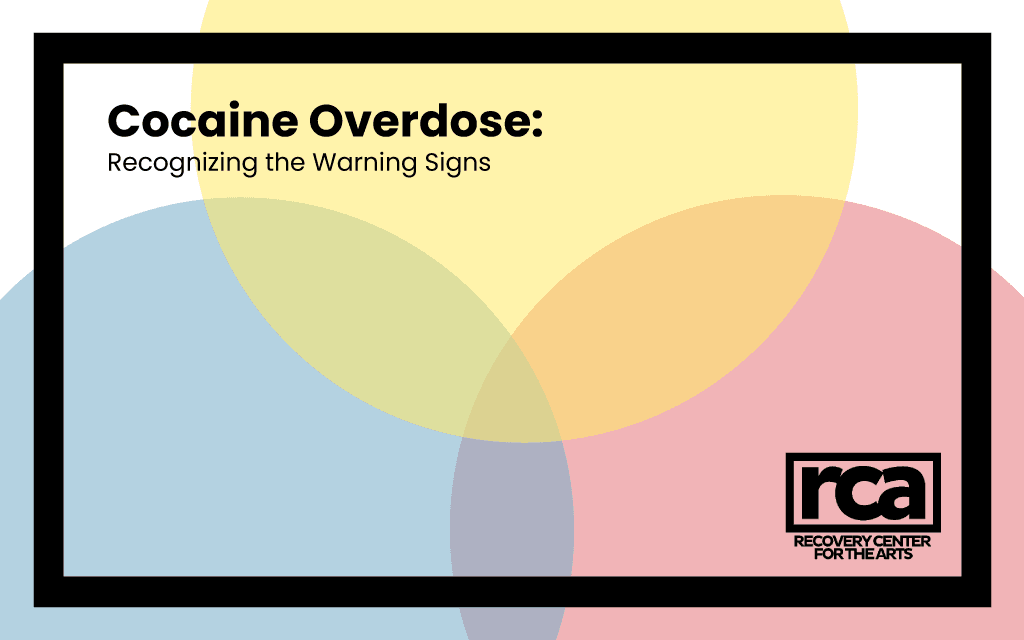
“thoughts packed into one
cluttered mind is cluttered room
waiting to be cleaned”“Overwhelmed” by Karen Croft
When was the last time you felt physically overloaded or overstimulated? How easily can you spot when you’re at your limit?
We all have lines that we can’t cross, or lines that, if crossed, lead to negative consequences. Sometimes this is as simple as missing out on too much sleep and being exhausted. Other times you might forget to take an important medication for more than one day and have health risks occur as a result.
These limits also happen to specific organs. We can get stomach cramps when we overwork ourselves. We get brain fog from low blood sugar. Our organs can even shut down during things like a cocaine overdose.
Did you know that?
Over 105,000 people aged 12 and older in Arizona reported engaging with cocaine at least once in the last year. Most of us have had people in our lives tell us about limits we shouldn’t push, or we learn them ourselves, but how many people truly know what happens if you push the limits with cocaine consumption?
Our team at Recovery Center for the Arts is dedicated to helping people in our community find support and healing. That’s why we’re here to educate you on cocaine overdoses, why they happen, how they impact you, and what you should do to treat or prevent them.
How Does a Cocaine Overdose Happen?
Overdoses are not exclusive to cocaine. They can occur from a variety of substances and medications, but how?
Our bodies have limits, as you likely already know. We can only eat so much before we feel stuffed. We can only work out so much before we become sore. While these limits may change over time and vary depending on many things, these limits also apply to other aspects like substances.
Medications and substances alike, at the end of the day, aren’t natural to the body. This doesn’t mean they’re all unsafe, but it does mean that they’re processed in a way that’s different from other things we put into our bodies. The main organs involved in processing them are the liver and kidneys, alongside the rest of the digestive system.
Your liver is only able to handle so much at a time. When you add more into your body while the liver is at capacity, the substance you added into your body starts to impact other organs more heavily. Continuing to take more of the substance will start to overwhelm your body, leading to a variety of side effects. This overwhelm and symptom combination is what we refer to as an overdose.
Are Cocaine Overdoses Deadly?
During an overdose, your body reacts in different ways depending on what caused the overdose. For example, depressants like opioids or alcohol lead to the body slowing down too much. This may cause low oxygen, the slowing of the heart, and unconsciousness.
Cocaine, on the other hand, is a stimulant. When in your system it leads to the speeding up of various systems, from your heart rate to your breathing. If this substance is overly present in your system it may lead to intense side effects like stroke or seizures, which can be deadly.
The deadliness of cocaine overdoses may also increase if other substances are involved, known as polysubstance use.

What to Look For – Recognizing the Warning Signs of a Cocaine Overdose
When it comes to trying to spot the signs of an overdose, there are two categories of symptoms you should look for: general signs of cocaine yes and the overdose symptoms themselves.
Overdoses don’t come out of nowhere. While they do occur unexpectedly or unintentionally for most people, this doesn’t mean that there aren’t noticeable symptoms beforehand.
The first symptoms you need to understand are the common symptoms associated with cocaine use. These will vary from person to person in intensity. They might also change depending on the person’s history with substance and cocaine use, overall. The most common symptoms include restlessness, increased irritability, anxiety, paranoia, and increased appetite.
The Physical and Behavioral Symptoms of a Cocaine Overdose
The symptoms of a cocaine overdose include:
- Chest pain
- Nausea and vomiting
- Confusion
- Hallucinations
- Tremors and muscle spasms
- Breathing irregularities
- Irregular heartbeat
- Stroke
- Seizures
- Heart attack
Preventing an Overdose – What Are the Risk Factors?
The most surefire way to avoid an overdose is to not engage with cocaine in the first place. This is for more reasons than you may think.
Of course, there’s the obvious one – no level of substance use is safe. It goes deeper than that, however.
One of the primary reasons it’s okay to engage with other stimulants like coffee or energy drinks is because of regulation. There are well-documented dangers of overconsumption, and many of these are printed right on the label when you buy a beverage like that. Many of these risks can also be measured because of the regulation, which leads to consistent dosages and ingredients.
This doesn’t happen with cocaine. It’s not a regulated substance. This means you never know what you’re putting into your body, how strong it is, or what other substances might be mixed in.
This becomes especially risky when fentanyl is involved. Fentanyl is a very potent opioid that can be cheaply produced, making it a prime candidate for lacing in other substances. It gives drug dealers an increased profit while not downgrading the effects of the cocaine.
Due to its potency, though, it immediately puts the individual at risk who decides to engage with it. It takes significantly less fentanyl to experience its effects than it does cocaine. If the person then takes it like it’s only cocaine, they’re putting a high quantity of fentanyl into their system, which highly increases the risk of overdose.
Buying from the same source, no matter how “trusted”, never negates the risks of unknown ingredients. The best way to prevent this, if you’re still engaging with cocaine, is to utilize fentanyl strips to test your substance beforehand.
What Should You Do If You or a Loved One Overdose on Cocaine?
If you think someone is experiencing a cocaine overdose, call for medical help. The Good Samaritan Law protects you from legal prosecution when seeking medical help for a drug-related concern. This means you should be open and honest with the help you call for, so they are able to best provide treatment to those who need it.
If someone experiences a seizure while overdosing on cocaine, you can help with that, too. Do your best to time the seizure to pass this information on to medical professionals. Clear the area around the person and lay a small, flat object under their head (like a folded-up jacket) to help cushion it.
Do not restrain the person in any way, shape, or form. If you’re able to, help them into the recovery position after their seizure, which is laying them on their side. Stay with them and calmly talk to them until they’re responsive. Don’t offer food or water until you’re certain they’re coherent.
An overdose doesn’t have to be deadly; you just need to know what steps to take.

How Local Arizona Cocaine Treatment Can Help You
If you’re seeking healing from cocaine use, whether for yourself or a loved one, there are many options available to you. There are quality cocaine rehab programs available that will give you the support you deserve and teach you the skills you need to tackle your cocaine use head-on.
Recovery is a road worth forging, no matter how many times you’ve tried before. No two people’s healing journeys look the same, and there’s nothing wrong with that. You are worth the time and effort, and you can reach your goals.
Our team here at Recovery Center for the Arts is dedicated to you and your recovery. We utilize the power of creativity in all its forms to build a strong foundation that addresses not only your substance use disorder but your inner spirit. Healing is multi-faceted, and we recognize that. Learn more about our program and how it can help you today by giving us a call at (480) 386-1593.
Recovery Center for the Arts – Finding recovery through creativity.

